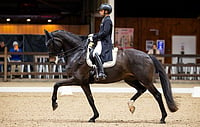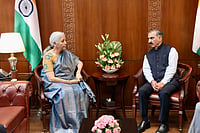Former vice president M Venkaiah Naidu on Saturday upheld the supremacy of the legislature in law-making and asserted that the judiciary has no role in the process.
Addressing the National Legislators Conference here, Naidu said Constitution has clearly defined roles for the executive, the legislature and the judiciary and none should "think they are supreme and overstep their limits".
"The legislative powers are solely given to the legislative bodies. Whether legislation is in accordance with the Constitutional provision or not, let the courts decide. But, courts cannot make legislation. The judiciary cannot make legislation, this has to be borne in mind," the former vice president said.
"The legislature decides, the executive implements and finally if anybody violates the provisions one can go to court. The judiciary must be dynamic and they must dispose of at the earliest," Naidu said.
The former vice president's remarks come in the wake of a row over the Constitutional separation of powers as the Supreme Court directed setting up a three-member committee to select the Chief Election Commissioner and Election Commissioners till Parliament enacts a law to the effect.
Naidu also expressed anguish over the repeated disruptions in legislative assemblies and Parliament.
He suggested that political parties evolve a code of conduct for their party legislators and ensure that unruly scenes, tearing of papers and breaking of microphones are avoided in the legislative assemblies and Parliament.
"I am not trying to say that there should not be opposition, differences, and disagreements in the House. In fact, protests, differences, consent-disagreement, arguments, debates, and differences are the features of our democracy," Naidu said.
"But the protest must be dignified and in accordance with parliamentary norms. Our behaviour should be based on respect for each other and this should be consistently maintained during debate and protest in the assembly," he said.
Naidu said people's representatives should not do any such work inside or outside the house which reduces the efficiency and dignity of parliamentary democracy.


























